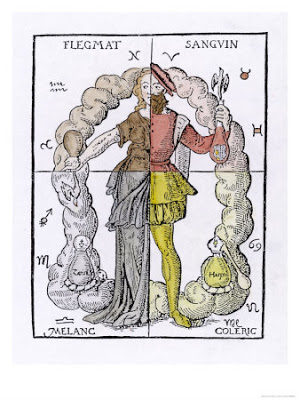
La Peste, as seen from Lincolnshire
30th March, 2020
Excited birds, glossy rabbits, bee queens in quest of nests, marsh marigolds divulging gold, spawn bulging in ponds, clear skies and sunshine, new leaves on trees, white bloom on blackthorn, clean sands and crisp seas unfurling to illimitable distance…
…and bitter winds from the east, freezing faces and fingers, chilling the blood – carrying the contagion of fear.
There are worse places to sit out Corona. Lincolnshire is at a slight angle to much of the rest of England, which is why we came here twenty years ago. Things that matter hugely in London, Manchester and Birmingham always feel smaller here, for better or worse. Even now, as England awaits epidemiological events with such existential uncertainty, metropolitan urgency still seems faintly overblown. Lincolnshire is still farming country, retaining old ideas of self-reliance, a place where people are inured to inconvenience and perhaps less prone to sensationalism. We are part of England’s story, but at its edges, left largely alone as media and politicians ponder the iconic streets (now eerily empty, and expectant) and the tense neighbourhoods where trouble might first be expected if this outbreak metastasizes from emergency to catastrophe.
The media carry the anxieties and character types of a cross-section – the bossy, the bullying, the calm, the caring, the complaining, the didactic, the energised, the panicky, the Panglossians, the paranoid, the perverse, the practical, the profiteering, the prophetic, the sanctimonious, the self-publicising, the smug, the oddly excited, and (almost an afterthought) the sick.
Some people come to prominence or grow in stature during crises, while others fade or shrink. The rest of us oscillate between calm decency and mean calculation, reacting in our different ways to daily headlines from journalists who usually don’t know any more than we do. And all voices, from the unanswerable to the unhelpful, the insightful to the insane, are amplified and repeated-retweeted through social media – living rooms suddenly brimming with noise while the outdoors gives itself over to birdsong.
Pestilences pollute as well as scour, confuse as well as clarify. Pious media pieces celebrating the new social cohesion jostle against stories of stripped supermarket shelves, bogus healthcare callers, and drunks spitting and coughing ‘corona’ over police. Millions clap for visibly moved doctors and nurses, while the world’s markets cast themselves off cliffs. (What economists may be overlooking is that all the world’s economies will be razed equally.)
No-one can say how corona will come to be viewed in medical history. So far at least, it pales into statistical insignificance when examined alongside the Plague of Justinian, the Black Death or the Spanish flu – not that statistics will matter much to victims and their families. It seems most people will either never get it, or if they do the symptoms will be mild. April could prove to be (to borrow from Eliot) ‘the cruellest month’ – but even if it is, perhaps that will be its zenith, and the virus will die away along with these unseasonable easterlies.
For some during this strange state of suspension, their chief enemies will be their own imaginations. We are so dangerously used to comfort and convenience – being able to buy what we like, do what we like, go where we like, and validate ourselves without reference to others. Long periods spent alone, or in close proximity to people we only think we know, will push some to extremes of behaviour and frustration.
And in the background there is always the skeleton at the (hitherto) perpetual feast – the possibility of extinction ‘before our time’, when ‘we still have so much to offer’. In a West where divine intervention is increasingly impossible, hopes of salvation focus on anonymous laboratories where at this very instant, some white-coat may be discovering the key to Corona – the key that will unlock the enigma and throw open all doors. For now, many of us are looking fretfully out at the exulting birds, and listening to the beating of their wings.
Yet for others, self-isolation could be a balm, and beneficial – and it may even be more widely, if a few take advantage of this opportunity to allow their imaginations and intellects to play over the way we live, and the ways societies are organized.
Can the new social cohesion possibly be sustained beyond the eventual ‘VV-Day’? Can this be the end of alienation and anomie, or at least signal a new approach? Will we reassess our polluting habits, and our profligacy? Will we read more, think more? Will we care better, eat better, farm better, shop better, guard our borders better? What does this confusion mean for globalism, liberalism, neo-liberalism, personal freedom, the extent and nature of government?
These are of course naïve questions, but they are also ones we now must ask and make some effort to answer. Over the next few weeks, I’ll take the socially isolating risk of offering some thoughts of my own. #
Read more Corona Humours.
Good piece. Brilliantly written.
Thank you. I also greatly appreciate what YOU do!
Quarantined in a hotel room in Perth (Australia), your ability to evoke landscape is very reassuring. I will look forward to the next instalment.
Thanks, Liam. Good luck with it all – and try and see what’s going on as a means of even (if that’s possible) greater empathy with, and understanding of, your favourite earlier English
Thanks for the surprise and consolation of this beautiful essay–poignant, evocative, and wide-ranging–about our unexpected pandemic. In a kind of backwater place of a former colony, I am waiting for your future chronicles.
Thanks, Terry. So kind, as always.
Sane thoughts in an insane time. Great work.
Thanks, Mark. Stay well
Very fine writing, Derek. Very good indeed. But I am not surprised by that. Certainly very thought provoking. Well done.
I have heard that the mountain air of Lincolnshire is a perfect cure for Covid.